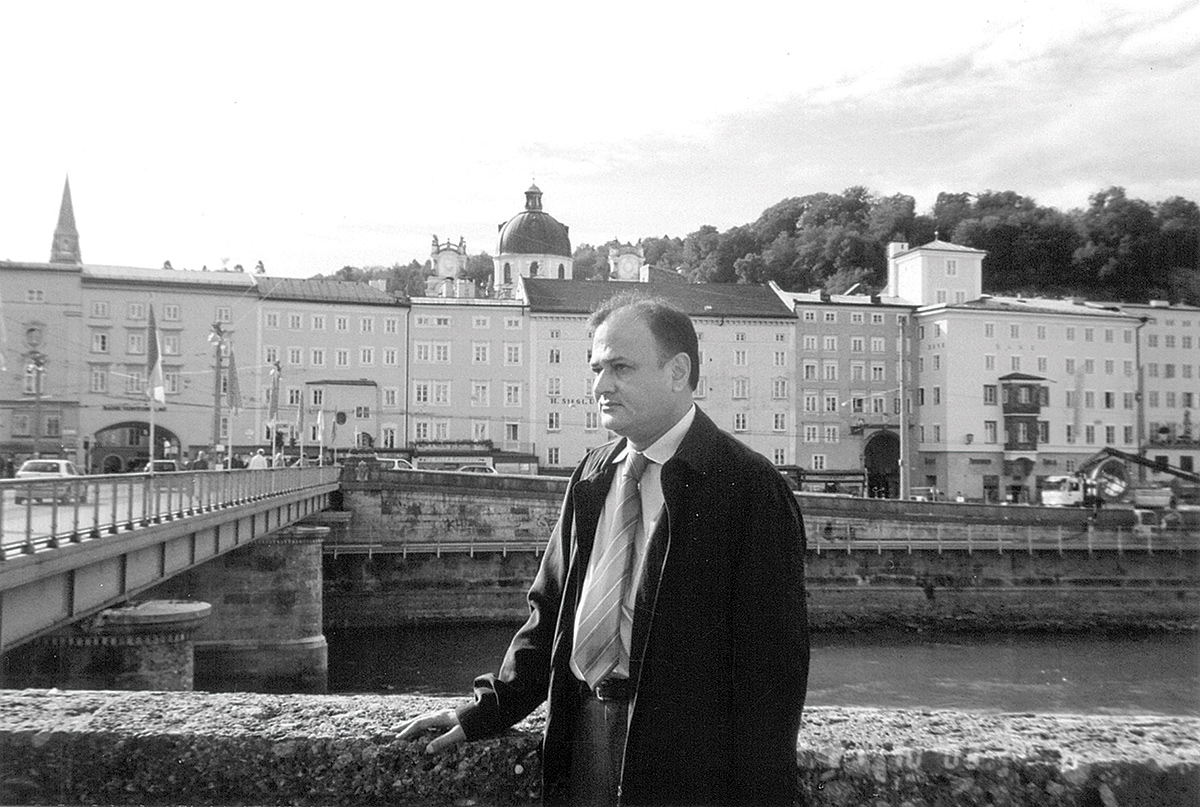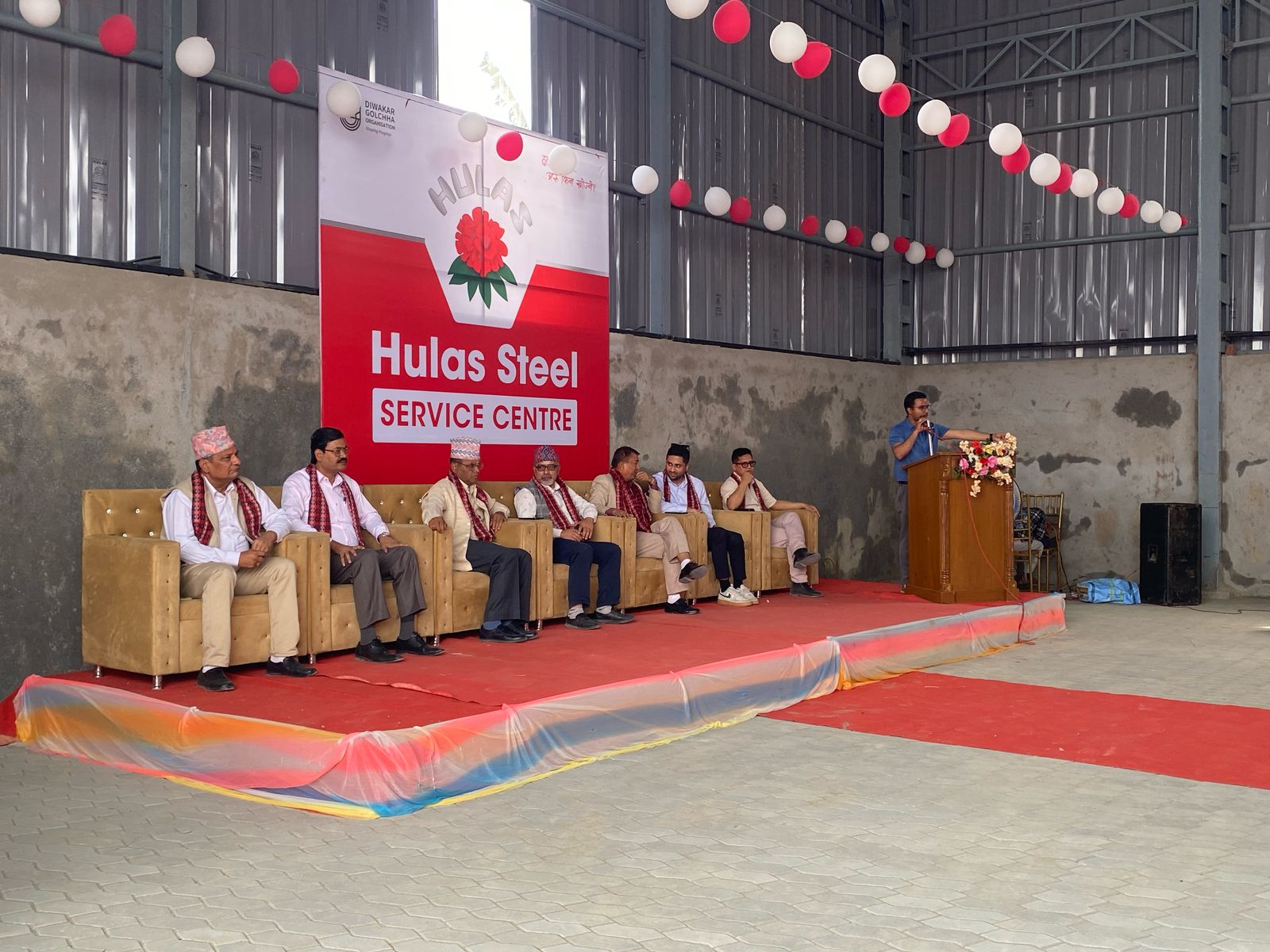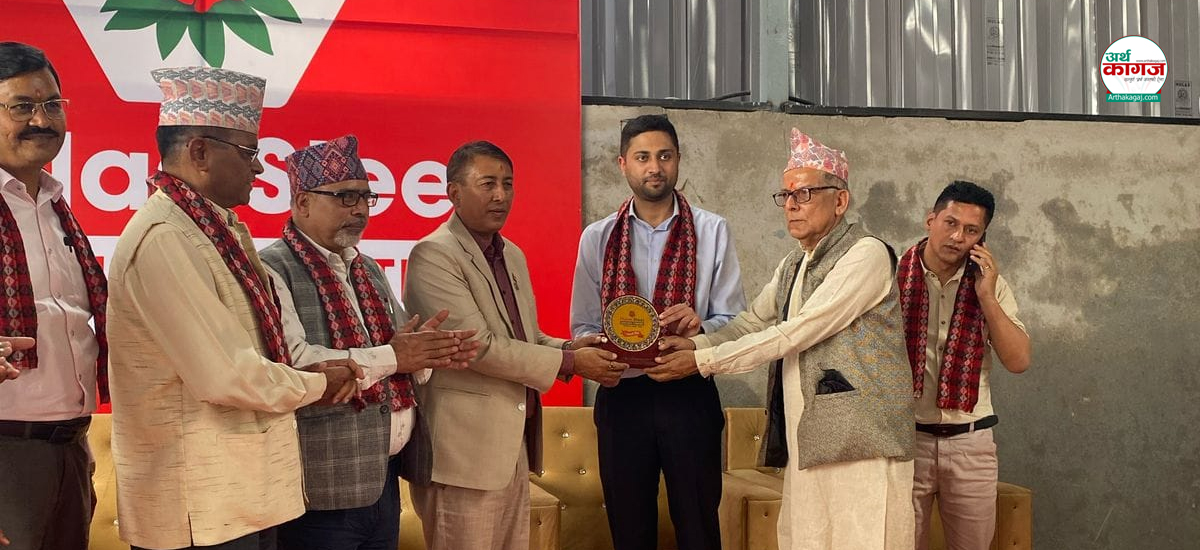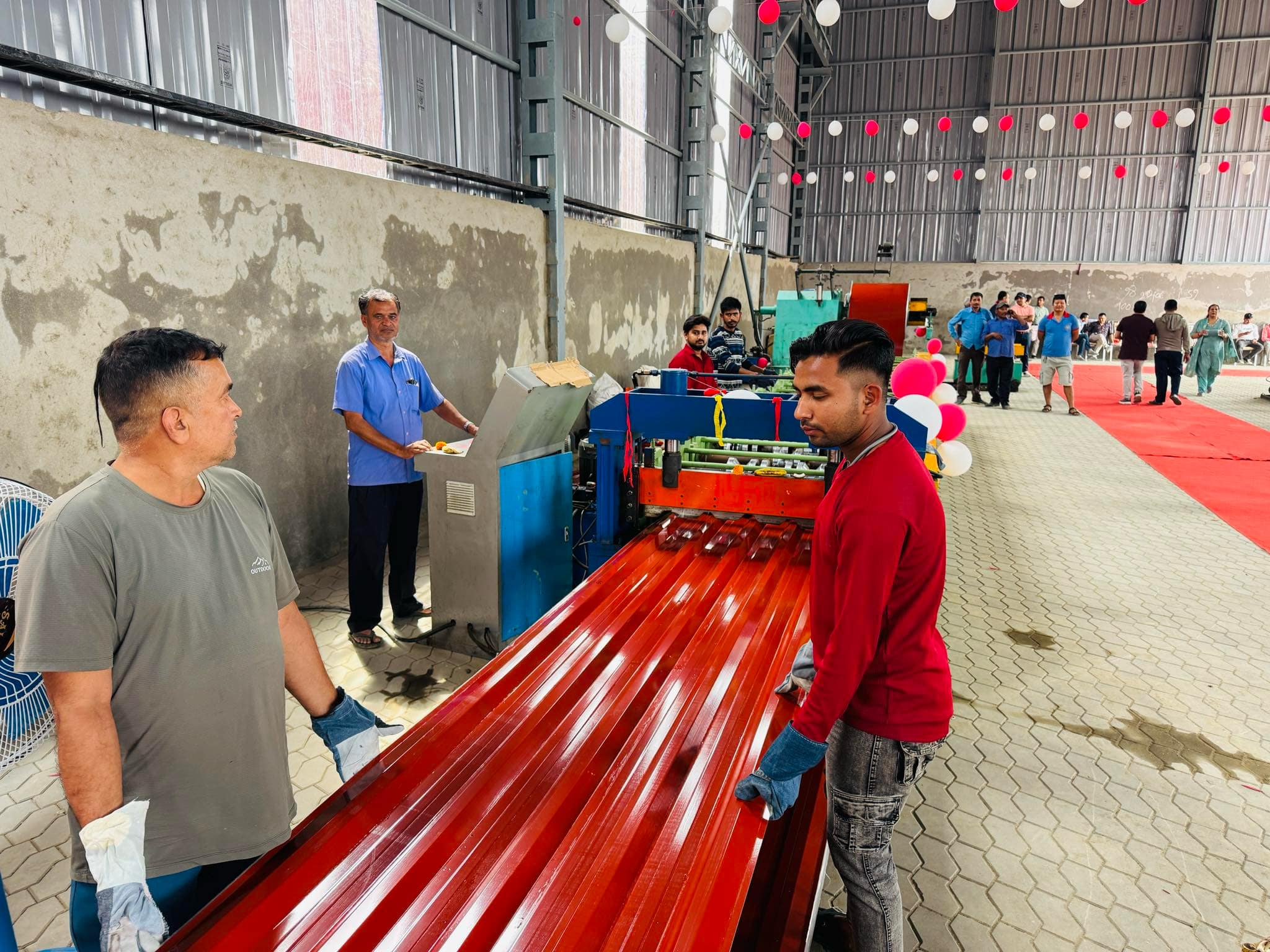A man of intense commitment and deep emotions, Diwakar Golchha was recognised by the business sector as a gentle and visionary leader. His courage and vision are lauded by many entrepreneurs across generations. Business 360 pays tribute to a man who was known for the sheer scale and depth of his entrepreneurial spirit, and the courage and fortitude to make his dreams into reality.
“I want to change my life’s bracket”, said late Diwakar Golchha when he was young. In July 1953, Diwakar Golchha was born to the prestigious Golchha family in Biratnagar. After joining business, the first turning point in his successful career was the big fire at the Jute Mill, the only business at that time. After the incident, he dominated the jute trade of Nepal. He also made a promise to himself that no house in Nepal would be prone to risk of fire due to thatched roofs. And this marked the beginning of a series of pioneering businesses in Nepal. He established Nepal’s first and largest galvanising sheet manufacturing industry and South Asia’s first colour coated sheet line, Hulas Steel Industries, in Bara as a joint venture. In the absence of internet and telephone in the country, the deeply entrepreneurial Diwakar established one of the first direct foreign investment companyin Nepal. Today the company boasts a capacity of one lakh tons per year with a range of products. He also went on to establish Hulas Wire Industries and expanded the production to include copper alloy, strips, sheets and foils making it the top three in the Indian sub-continent.
In 1987, Diwakar Golchha took over BP Rice Mills on lease and that marked the group’s entry into the food production business. Thereafter in 1988, he established Him Electronics which is also a hugely successful portfolio. From the 1990’s, Diwakar Golchha was successful in a series of entrepreneurial ventures including sugar, jute, apparels, ethanol, boards, cement, all with keen precision to modernise and engage technology for better outcomes.
After his demise in April, 2019, he is survived by his wife Jaishree to whom he was married in 1976, and sons Hitesh and Himanshu Golchha
Education
Diwakar boarded his first flight to Delhi for studies. He enrolled for management and completed his Bachelors degree there. An example of his determination and perseverance is that to get a car allocated to him while studying in Delhi, he managed to meet Indira Gandhi. It was 7am in the morning when he reached her house and they talked about Nepal’s politics as well as India and Nepal relations. The energy of late Prime Minister Indira Gandhi influenced him immensely.
Back home, he did his MBA from Tri-Chandra College and scored 86%. During his post-graduation, he had a group of three friends. They never used the textbooks referred by the college rather they would get books imported from Europe. The influence was such that the lecturer used to ask him to teach in the class. An SLC failed student, Diwakar used to teach Master level students during his college days.
The jute mill
Diwakar often used to wonder what his grandfather, father and uncles might have suffered to start the Golchha Organisation. The life incidents of Hulas Chand Golchha - written in his book ‘Hulas’ left a strong imprint on his mind.
In the book, it is mentioned that Diwakar’s father left his studies and joined the business when he was just 13 years old. In a short span, his father got interested in the jute business. He would travel from one village to another to sell jute. He used to reach farmers homes and buy jute. This led to the expansion of the jute business. This story always inspired Diwakar.
Married life
Diwakar was 21years old when he first met Jaishree at his elder brother’s wedding. She was his elder brother’s sister-in-law. It was love at first sight for Diwakar. They used to talk less on the phone and exchanged letters in abundance. He wrote letters to Jaishree even from America and Paris. Those letters still exist and carry the intensity of his memories. He would often travel to Bangalore to meet her. After several clashes with his grandfather, he married the girl of his choice.
Relationship with the late king
Diwakar’s grandfather, Ram Lal Golchha was in good terms with King Mahendra. Whenever Ram Lal used to visit the King, he used to take Diwakar along. This came as an opportunity to interact with the princes, Birendra and Gyanendra.
He was later decorated with the ‘Suprabal Gorkha Dakshin Bahu’ by the late King His Majesty Birendra Bir Bikram Shah Dev for his commitment to the nation.
Industrial politics
The country’s premier industrial institution, FNCCI saw the presence of Hulas Golchha, Diwakar Golchha and now Shekhar Golchha who have been valuable members of the apex business body.
From 1991 to 2011, Diwakar Golchha served as the first Vice President of the Federation of Nepalese Chamber of Commerce & Industries, and played a critical role in implementing VAT in the country. From 1997 to 2002, he played a vital role in addressing the Nepal-India Trade & Transit Treaty.
In 2008, Diwakar Golchha became a member of the first Constituent Assembly of Nepal. During this period, he was active in the Department of Law. Speaking in the Parliament, he always raised his voice most for the cause of farmers.
A highly accomplished businessman and a keen philanthropist, he was a team member during the establishment of the Tilganga Eye Hospital of which he also served on the board. The Ramlal Golchha Eye Hospital is an exemplary initiative of the Golchha Organisation. Besides. Diwakar Golchha was dedicated to several other philanthropic causes.
Loss
Diwakar lost his only daughter in the year 2055 B.S. The death, which happened in Calcutta, ignited a deep sense of loss and he wouldn’t attend office for days. Again when he lost his younger brother, Mahendra Golchha, who was his right hand in managing various businesses, and later the loss of his cousin nephew Aditya Dugar who was spear heading Hulas Steel left him broken.
Even to the end, he wanted everyone – friends and family - to do well and be well. He always moved with studied ease between the many goals he set, the many relationships he developed and maintained over his lifetime, and the many interests that he enjoyed. He was an inspiration in good times and challenging times and will be greatly missed by all those whose lives he touched.
Hitesh Golchha
My father was an excellent example of workmanship, passion and persistence. He could work for 18-20 hours a day. He taught us discipline. My childhood passed in the working environment of my father. We understood why and how the industry was operating at an early age.
He used to love reading, driving and traveling however, business was his passion.
When I was leaving for university to UK he gave me the most valuable lesson at the time “don’t go after scores, the objective should be to learn as much as possible, that’s real education”. This enabled me to take some very educational but tough courses.
He used to say, “Always do such a business that should be purely beneficial to the nation and its people”. He established companies including paper, sugar and jute which were 80-90% local value addition giving direct benefit to farmers.
His involvement was not only in the business. He had closely seen politics. Girija Prasad Koirala who had great regard for my father often asked for his advice. He used to spend a lot of time in FNCCI and later with politicians. When questioned he used to say “We can only prosper if the country prospers so it’s important to help the country where I can”.
He used to have high concern for the entire family. He thought of starting at least nine different businesses for nine brothers respectively.
After entering the business, I got the chance to work with him for 20 years and learned the most valuable business and life lessons.
Himanshu Golchha
My father always used to say that to move forward, work hard in life. His personality was influential. He had the confidence to rake risks. When he used to be with the family, he always used to share stories of the challenges he faced. He wanted us to get motivated through this. He was a man who was successful at an early age. He was equally capable of developing skilled human resources.
The relationship with the employees was special. Three generations of workers work with us. All could have died for my father. His influence was such. We still have employees who have worked with my father since the inception. His biggest weapon was faith.
When I newly started a business, I witnessed a huge loss due to sudden increment of dollar value. At that time, my father said, “Do not worry Himanshu. Business is not gambling, occasionally it gets into such situations. You should rather focus on doing your best and learn from your mistakes. Another opportunity will knock instantly.” These words are still fresh in my mind.
His ability to make decisions was sharp at heart. At times, we could not get his decision, but his long-term decision was always good. Also, he could not see anyone’s suffering. He was always ready to help inside out.
His dream was to establish more and more industries by dissolving world-class technology in the country.
Lokmanya Golchha
Diwakar always used to think of something new. He shaped his dreams and set up new types of industries in the country. This is the key reason why he plays a major role in today’s expansion of Golchha Organisation.
After my uncle Hulas Chand’s deteriorated health, Diwakar entered FNCCI. He worked in the federation as its Vice President. However, serving as the first Vice President of the Federation, he had a great role in the implementation of the Nepal-India Trade Agreement and Value-added Tax (VAT).
Moreover, he had a strong influence on the family. We did not start working without interconnecting with one another. We have studied together in Biratnagar. I still remember Diwakar used to love horse riding when he was young and whenever he used to get injured, he used to come running to me.
Shekhar Golchha
When we grew up, Diwakar was the hero of everyone and we aspired to be like him. It was natural for us to have the influence of his work in industrial and social sectors and his influence in politics as well.
The creation of several industries led to a massive increase in employment opportunities in the country. Diwakar is the only hero to make an industrial house for 17,000 workers.
For him, every business or industry was a temple and taught us the same thing. Discipline was his biggest religion, and he did not like to spend much time sitting idle. The greatest thing to learn from him is courage. The agreement with India made Nepalese export to India in zero customs. This is his great contribution to the country. He spent months in India looking for wisdom.
I will always cherish that I was with him till the last stage. I not only lost my brother but also my inspiration. The country lost a very successful entrepreneur.
Source: https://b360nepal.com/public/the-life-legacy-of-diwakar-golchha-a-tribute





 (1).jpg)


